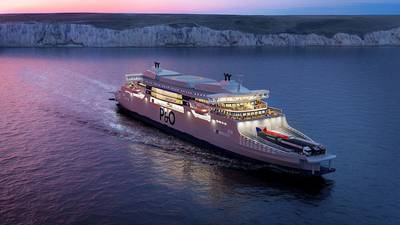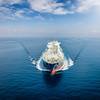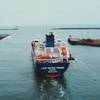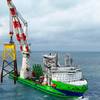ABB to Power P&O's New Hybrid Ferries
Swiss-based ABB said it has been awarded a contract from Guangzhou Shipyard International to supply electric, digital and connected solutions for two new vessels the Chinese shipyard is building for British operator P&O Ferries.
The hybrid propulsion solution, using electric power from 8.8MWh batteries and diesel generators, will cut fuel consumption on P&O Ferries’ Dover-Calais route by 40%, ABB said. The batteries will provide full power for harbor maneuvering and stay in port and will prepare the vessels for a zero-emission future once more electric shore charging stations are available.
Equipped with four Azipod propulsion units per vessel, each rated at 7.5 megawatt, the 230-meter-long vessels will be the largest passenger and freight ferries ever to sail the route when they enter service in 2023. The benefits of bridge-to-propeller integration proved decisive in selecting the hybrid solution for the new ferries, according to P&O Ferries.
In addition to Azipod propulsion and energy storage, other ABB solutions for the new ships will cover power and propulsion, automation and power energy management. ABB’s Power and Energy Management System (PEMS) is closely integrated with the electrical system and ensures optimal use of the vessel’s total power resources by improving the information flow across shipboard systems, the company said.
Built to the double-ended design where the vessels will feature a pair of Azipod units and a bridge at each end, there will be no need to turn ships in port. The captain and senior officers will simply walk to the opposite bridge, saving seven minutes on each outbound and return journey and one ton of fuel – a sixth of what is used on the 21-mile crossing.
The vessels will also be equipped with ABB Ability Marine Pilot Control, the intelligent maneuvering and control system designed to enable safer, more efficient operations by automating some navigational tasks to allow bridge officers to focus on optimizing overall ship control and positioning, according to ABB.
The vessels’ engines will be equipped with ABB’s Power2 two-stage turbocharging system that will further improve power efficiency and help achieve up to 5% fuel savings. In addition, the Power2 system will help reduce up to 60% of nitrogen oxide emissions.














